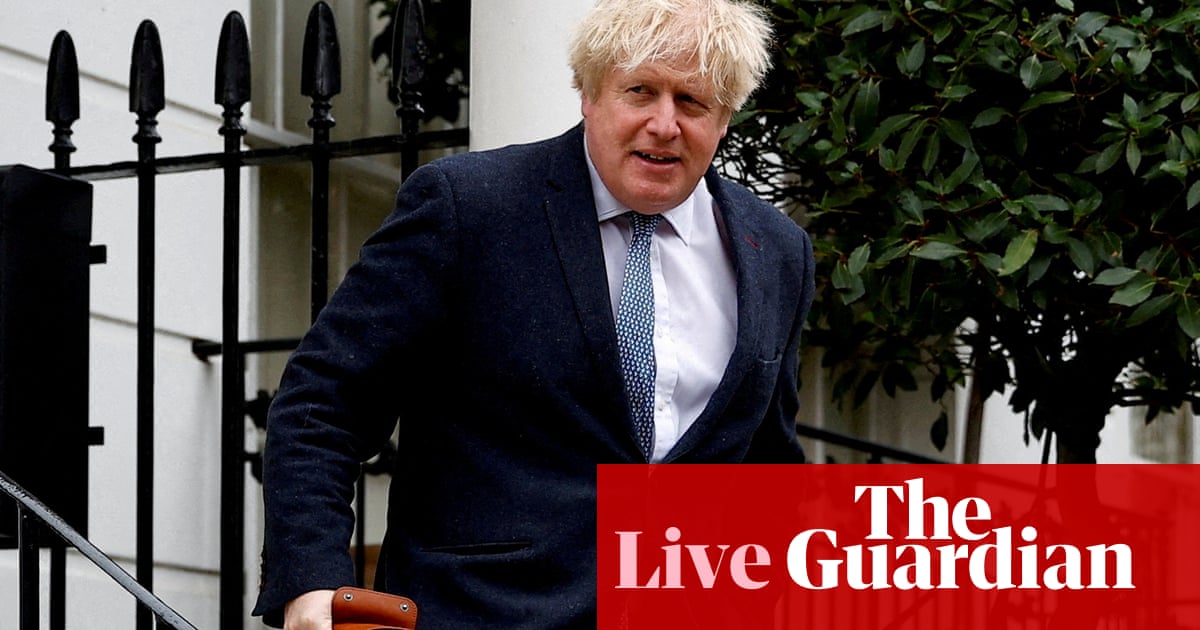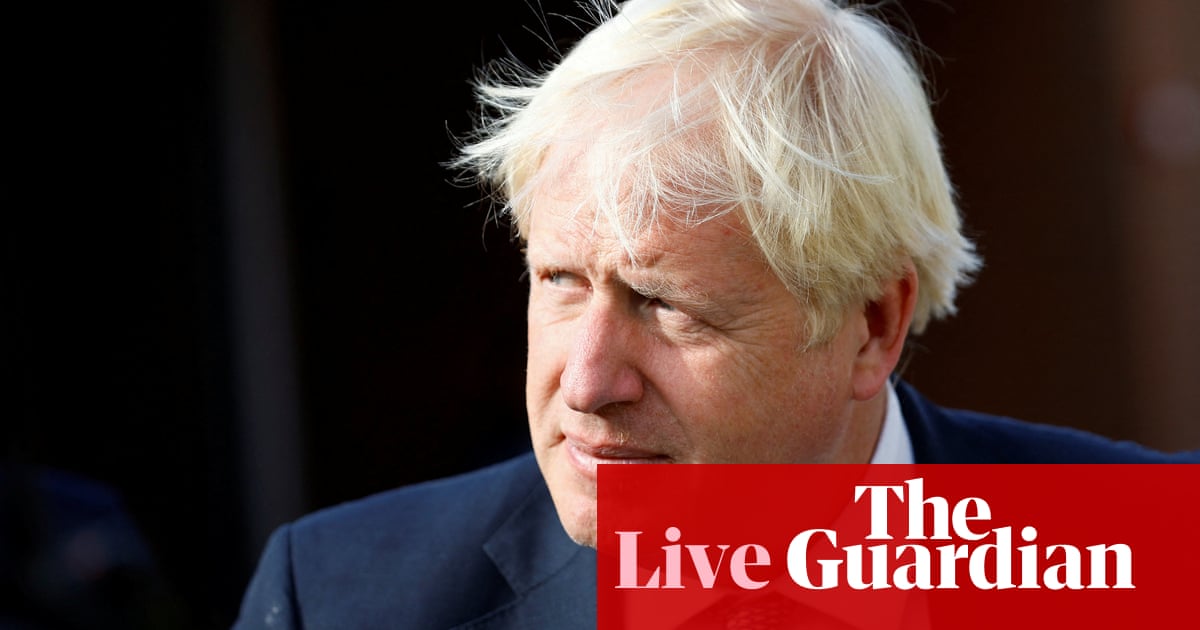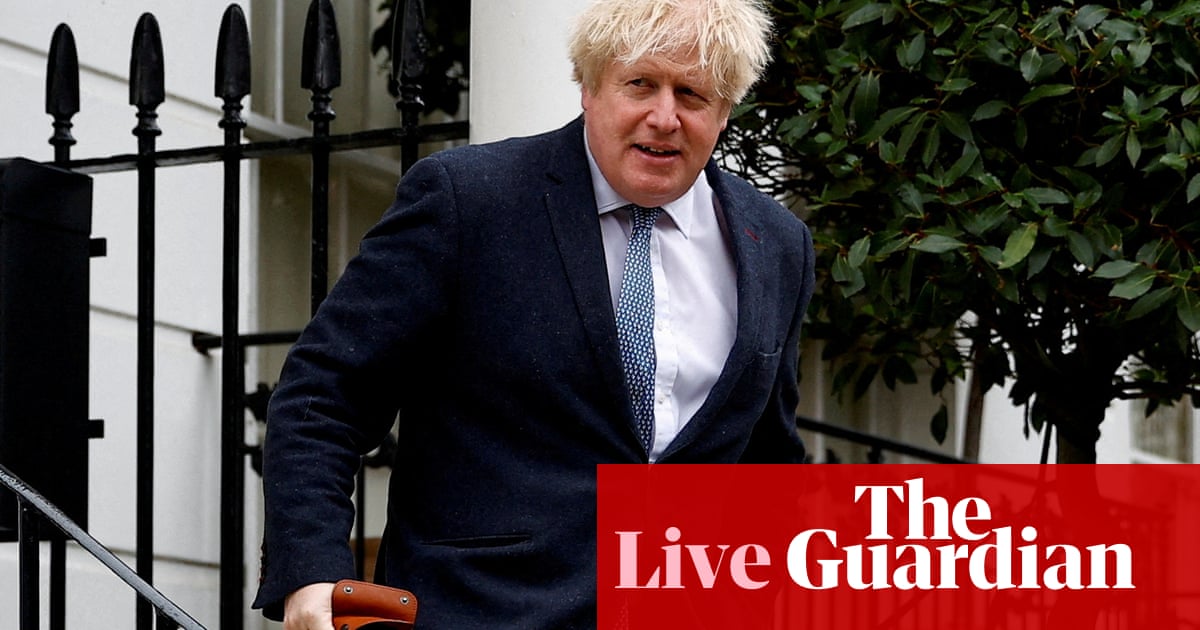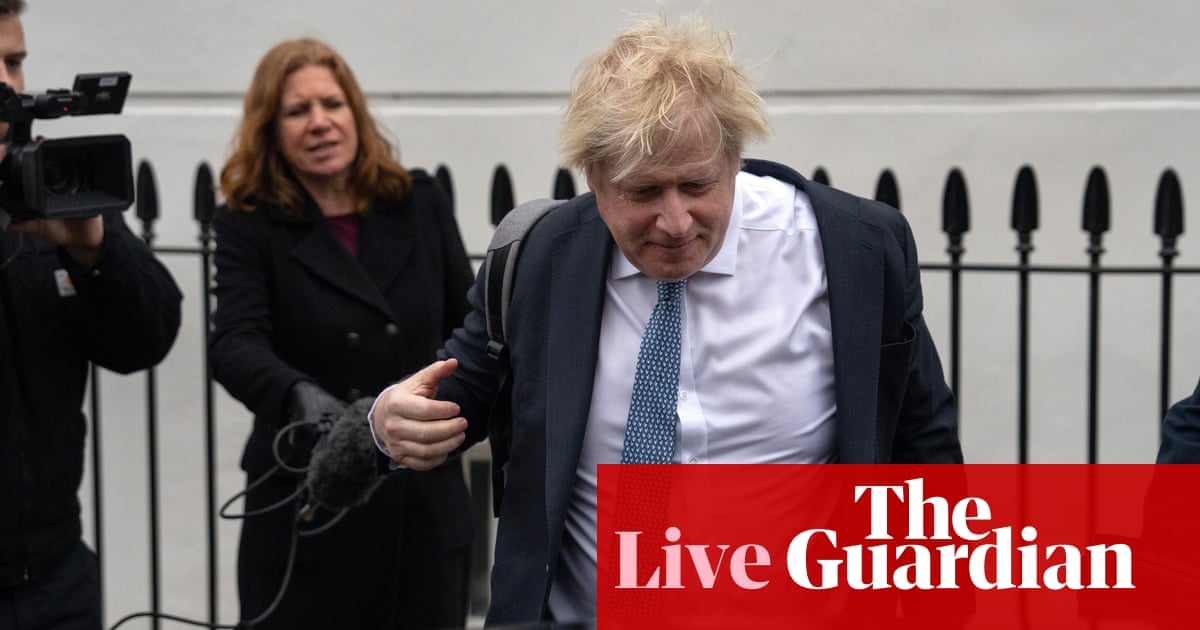
Labour says PM told "barefaced lie" about parties as conclusion of Met inquiry means privileges committee probe can start
The conclusion of the Met investigation into Partygate does not just mean that the Sue Gray report into the lockdown-busting events will be published imminently; it also triggers the launch of the privileges committee inquiry into claims that Boris Johnson deliberately misled MPs when he said the rules were followed at all times.
The Commons voted for this investigation to go ahead last month, but the motion passed by MPs said the committee would “not begin substantive consideration of the matter” until the Met inquiry was over.
In an interview with Radio 4’s World at One Emily Thornberry, the shadow attorney general, said that Johnson told a “barefaced lie” in the Commons and that this was the most important reason why he should resign. She said:
Based on the 126 fines from the parties as at No 10, just looking at the sheer scale of law breaking which has been laid bare by the police, what we know now, for absolute certainty, is that when Boris Johnson came to the House of Commons and said there were no parties in Downing Street and no rules have been broken, that that was a barefaced lie. There is no possible way in which he can claim that he was unaware that these parties that he was attending didn’t break the rules here.
And for that - we think it’s an extremely important point, always been the most important point - he should resign.
Afternoon summary
Boris Johnson will not receive any more fines for lockdown-breaching parties, it has been confirmed, after the Metropolitan police said they had completed their investigation into gatherings in Downing Street and Whitehall. The government is now expected to publish the Sue Gray report next week, which will set out in more detail how the lockdown rules were broken in No 10. Johnson will respond with a statement in parliament. The conclusion of the Met investigation also means the Commons privileges committee is free to start its inquiry into whether Johnson deliberately misled MPs about the parties, although it is not clear yet exactly when this will start. Labour says Johnson told a “barefaced lie” about the parties, and that this, above all, is why he should resign. (See
The EU ambassador to the UK has rejected Liz Truss’s demand that the Northern Ireland protocol be rewritten, and issued a blunt warning of retaliation if the government passes a law disapplying aspects of the agreement.
Downing Street has denied reports claiming it is blocking the Treasury from imposing a windfall tax on energy companies (see 9.48am) as the chancellor faced pressure from the CBI to “help the hardest-hit now” with financial help to get them through the cost of living crisis. (See 9.09am.) As PA Media reports, the PM’s spokesperson said he had seen “lots of reports” on division between the departments, but he insisted Boris Johnson and Rishi Sunak were “aligned” on the issue. Labour accused the government of acting like “headless chickens” on the matter and suggested a U-turn was inevitable. (See
Here is an article explaining what some of our readers are saying about their response to Partygate.
These are from Danny Shaw, the BBC’s former home affairs correspondent, on why Boris Johnson may have received just one fine over Partygate.
Earlier this year, as the Partygate scandal first erupted, Sir Charles Walker, a former vice-chair of the Conservative backbench 1922 Committee, said he thought Boris Johnson would have to resign because he thought his position was irrecoverable. In an interview with Newsnight, Walker now says he was wrong. Johnson was able to defy predictions because he is an “extraordinary politician”, Walker says.
The Conservative former chancellor George Osborne thinks Boris Johnson will survive as PM for now because none of his rivals are determined enough to oust him.
In the run-up to the Brexit referendum in 2016, Osborne and Johnson were arguably the two best-placed candidates in the contest to succeed David Cameron as prime minister. Johnson got there in the end, and Osborne now chairs a museum. He knows more than most people about how power struggles can turn out.
Nadine Dorries, the culture secretary, shares her Netflix account with four other households, including her mother’s, she told MPs at the culture select committee this morning, calling the streaming service an “incredibly generous system”. My colleague Alex Hern has the story here.
This is from Adam Wagner, the barrister and lockdown regulations specialist, on why Boris Johnson may have been able to avoid being fined for his attendance at the BYOB party in the Downing Street garden on 20 May 2020.
Beergate controversy has not significantly damaged Labour"s standing with voters, polls suggest
There are two new polls out today. Both of them suggest that the Beergate controversy has not caused any significant damage to Labour’s prospects.
According to Ipsos Mori, Labour has a six-point lead over the Conservatives – up one point from last month (when the Beergate story had yet to reach full intensity). Here are the figures.
Here is a chart illustrating this.
And here is the full write-up, which points out that Labour has a 15-point lead over the Conservatives on the cost of living, while the Conservatives have a nine-point lead on expanding the economy.
And Savanta ComRes has a poll giving Labour a seven-point lead over the Conservatives – up two from early May (when Beergate was prominent as a story).
The same poll suggests Keir Starmer’s favourability ratings have fallen. But Boris Johnson’s have fallen even more, and Starmer has a narrow lead over him on who would be the best PM.
From Newsnight’s Lewis Goodall
This is from the Mirror’s Pippa Crerar on why Simon Case may not have been fined over the surprise birthday party for the PM. (See 2.58pm.)












